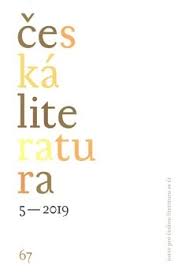Komunikace a roztok
Communication and solution
Raymond Williams and the concept of medium
Author(s): Josef ŠebekSubject(s): Czech Literature
Published by: AV ČR - Akademie věd České republiky - Ústav pro českou literaturu
Keywords: Williams Raymond; cultural materialism; literary theory; media theory; theory of culture; mediality; medium; technological determinism; signifying system; solution and precipitate
Summary/Abstract: This study deals with the concept of media in the work of British literary and cultural theorist Raymond Williams. It is based on the observation that the concept of media never predominated in Williams’s work, but that together with such associated concepts as communication, transmission and process this concept is constantly present within it, offering the option of interpretations different to those presented by Williams himself. The first part briefly presents the media aspects of Williams’s books Culture and Society, 1780–1950 (1958), The Long Revolution (1961)and Communications (1962): the key term in these works is communication, with literature and art as specific cases. Williams believes that communication needs to be understood in a broad sense as a creation of societies and communities, and that it cannot be reduced to the technical aspect of the communication mechanisms. Media are conceived here as the established means of communication that have emerged historically, and the conception is highlighted whereby they are of key importance for an understanding of culture as currently lived, as a „solution“ in contrast to a „precipitate“. The second phase of Williams’s thinking on media is characterized by an explicit focus on this term and the comprehensive examination of specific„new“ media, particularly in the book Television: Technology and Cultural Form (1974). At the same time, however, Williams comes to terms with the most influential media theory of that period, expounded by Marshall McLuhan. Williams rejects McLuhan’s notion that he considers to be the central example „technological determinism“. Subsequently, he identifies „medium“ with the narrowly conceived technological aspect and replaces in with the term „means of communication“, which he separates into amplificatory, durative and alternative means. On the basis of a more detailed argument, the third section of the study proposes a reading which, in spite of Williams’s explicit rejection of the term „medium“, understands that his thinking continues to be highly „medial“. It is from this standpoint that Williams’s two most important theoretical books Marxism and Literature (1977) and Culture (1981) are interpreted. Particularly thought-provoking is Williams’s understanding of culture as a „solution“: the media can actually be considered to be the means of „dissolution“, facilitating the fusion of „signifying systems“ and of various (artistic and non-artistic) areas of human activity and experience. In his book Marxism and Literature this view can also apply to Williams’s understanding of literature. Hence this study provides a deeper insight into media issues in Williams’s work and shows that they form the inspirational axis for Williams’s thinking on literature and culture.
Journal: Česká literatura
- Issue Year: 67/2019
- Issue No: 5
- Page Range: 684-710
- Page Count: 27
- Language: Czech

